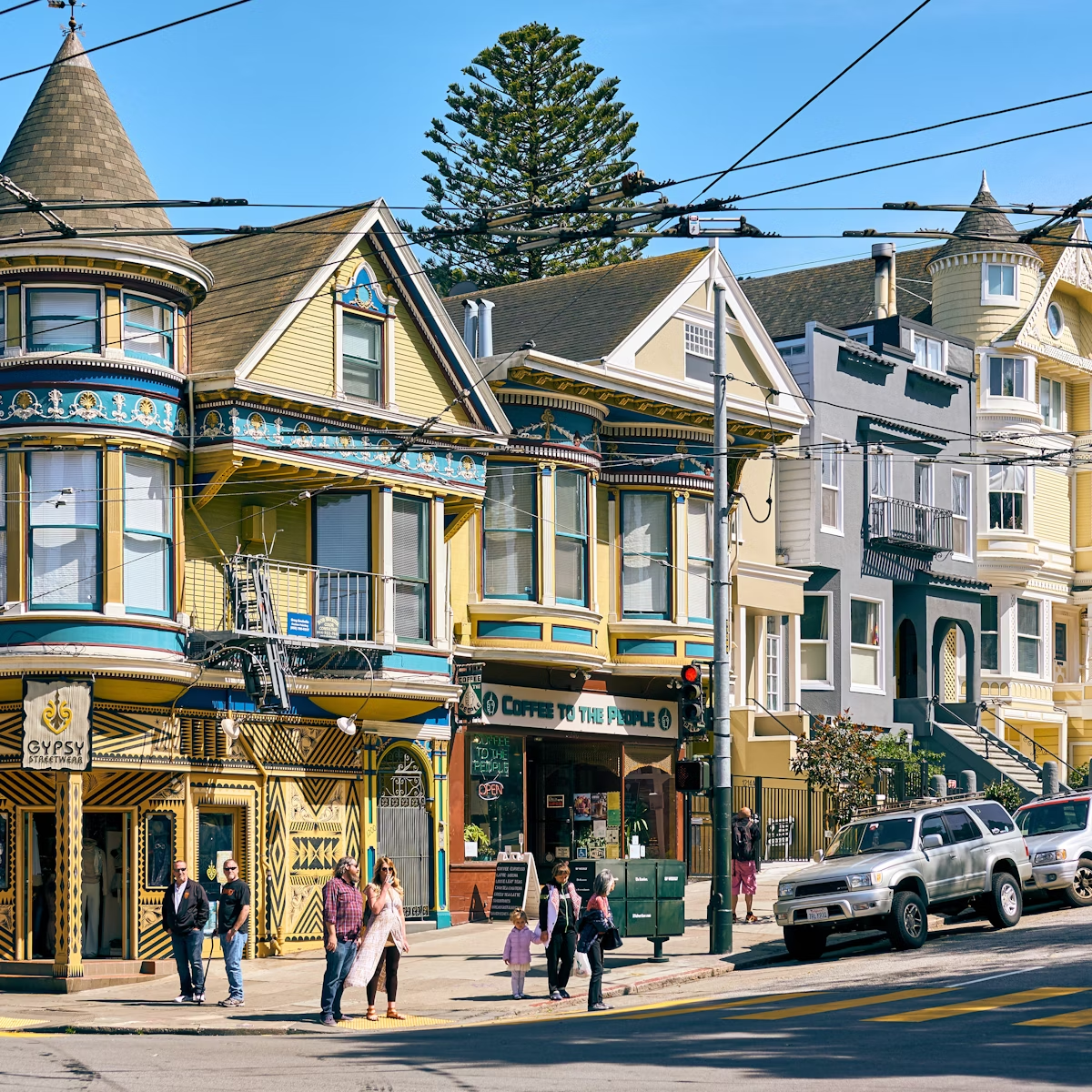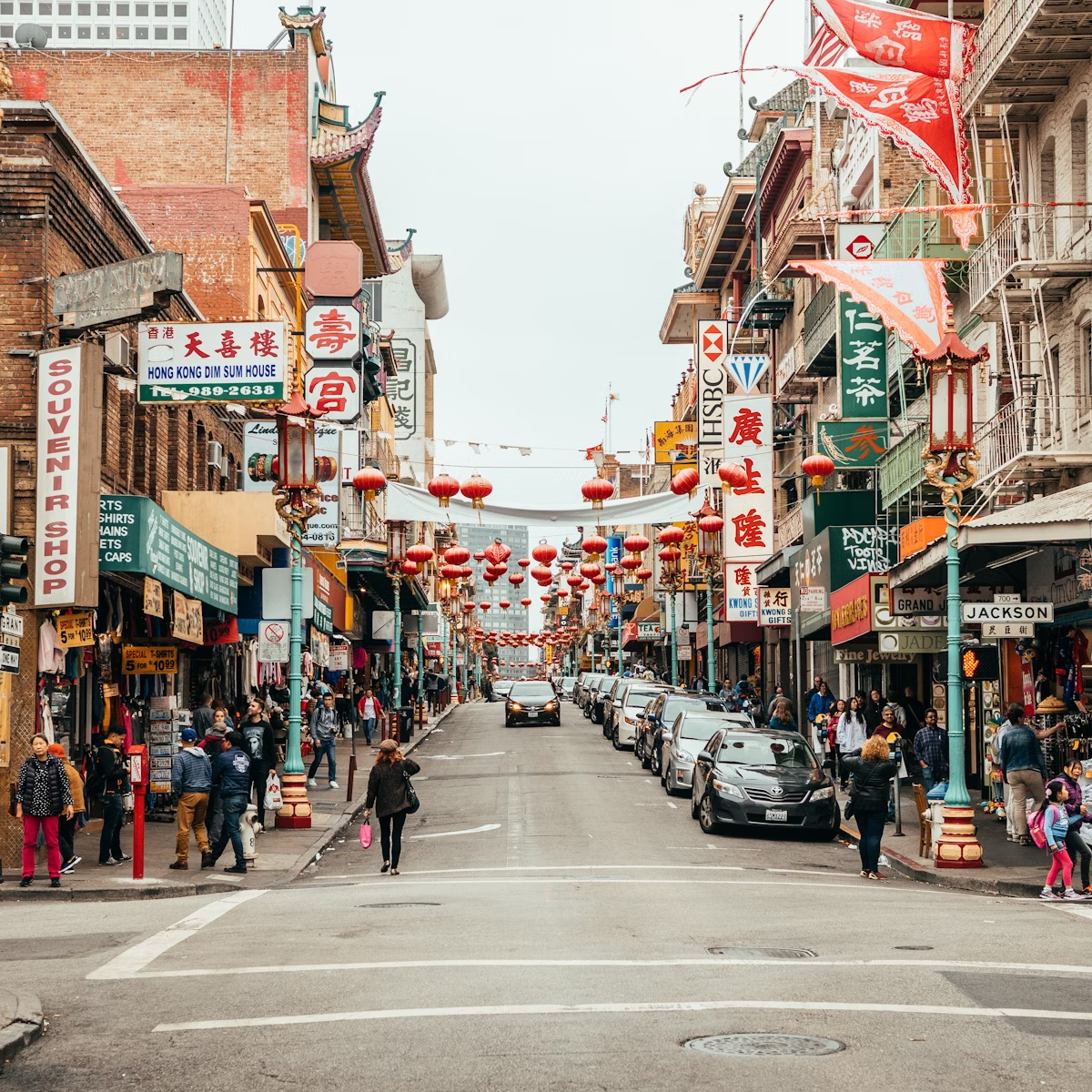Follow sculptor Andy Goldsworthy's artificial fault line in the sidewalk into Herzog & de Meuron's sleek, copper-clad building that's slowly oxidizing green and blending into the verdant backdrop ofТ Golden Gate Park.
Don't be fooled by the camouflaged exterior: shows here boldly broaden artistic horizons, from Oceanic ceremonial masks and trippy-hippie handmade fashion to James Turrell's domedТ SkyspaceТ installation, built into a hill in the sculpture garden.
The history of the de Young museum
The de Young museum emerged out of theТ California Midwinter International Exposition of 1894 that cemented the then-new Golden Gate Park as more than San Francisco's back yard, but one the premier green spaces in the country. Today, the Sphinx statue outside is one of the few remnants of the Egyptian revival architecture that contained the museum's early, eclectic assortment of anthropological artifacts and artworks.
Redesigned after the 1906 earthquake by Louis Christian Mullgardt, the de Young reemerged in 1919 freshly renamed in honor of the co-founder of theТ San Francisco Chronicle who'd championed the museum in its early years, as well as the park in which it was situated.
What to see and what's on
The de Young's collections grew to include examples of US, African, Oceanic, South and Central American, and graphic art, as well as textiles and photography from around the world. Its European art collection was shifted to the Legion of Honor in the 1970s, creating more room for Indigenous art from a number of different global cultures.Т
Today you can see both the de Young's permanent collection offer as well as special exhibitions that take a deep dive into its archives like theТ The Turkmen Storage BagТ collection, as well as visiting shows like the sold out Calder-Picasso exhibit and Runway of Love, an exhibit of Black fashion designer Patrick Kelly's garments that explored expressions of race and queer identity.
Admission and free days at the de Young
The museum is open from 9:30AM to 5:15PM Tuesday through Sunday, and costs $15 for adults, $12 for seniors over 65, $6 for students, and is free for anyone under 17.Т Receive a $2 discount with proof of purchase from any Bay Area public transportation system, including BART, Muni, Caltrain, and more.
Through December 2021, Essential and Frontline workers are . On Saturdays, residents of the nine counties that makeup the Bay Area can get free admission. Anyone can get free admission on the first Tuesday of each month. Any visitor who is also a recipient of Medi-Cal or SNAP benefits qualifies for free general admission during normal business hours.Т
Additional admission is sometimes charged for special shows likeТ . Because the museum is issuing timed tickets due to the COVID-19 pandemic, it's best to book ahead.Т Ticket includes free same-day entry to theТ Legion of Honor.
The de Young museum can easily be accessed by car, public transportation, or Golden Gate Park's shuttles. The nearest parking garage isТ the Music Concourse garage, which may be accessed from the Fulton Street and 10th Avenue entrance and costs $33 for a full day.Т
Accessibility at the de Young
Visitors with disabilities can get free admission to the de Young and discounts on special exhibits. The museum is accessible for those who use mobility devices, and wheelchairs can be requested from coat check or admissions, along with stools to use in the galleries. Restrooms are ADA accessible as well as gender-neutral.
ASL interpretation is available for visitors who are deaf or hard of hearing, including forТ all public programs, lectures, and tours if requested two weeks in advance. Computer activated realtime transcription is similarly available for request.Т Т Assistive listening devices are available, too.Т
Tactile interpreters can be requested by blind and visually impaired visitors two weeks in advance. Audio tours are available at exhibition entrances and at the Information Desk, as are braille and tactile museum maps.Т
One unique service the de Young provides is Artful Discoveries, a special opportunity to share art with individuals experiencing early-stage dementia that allows forТ multisensory exploration.Т












